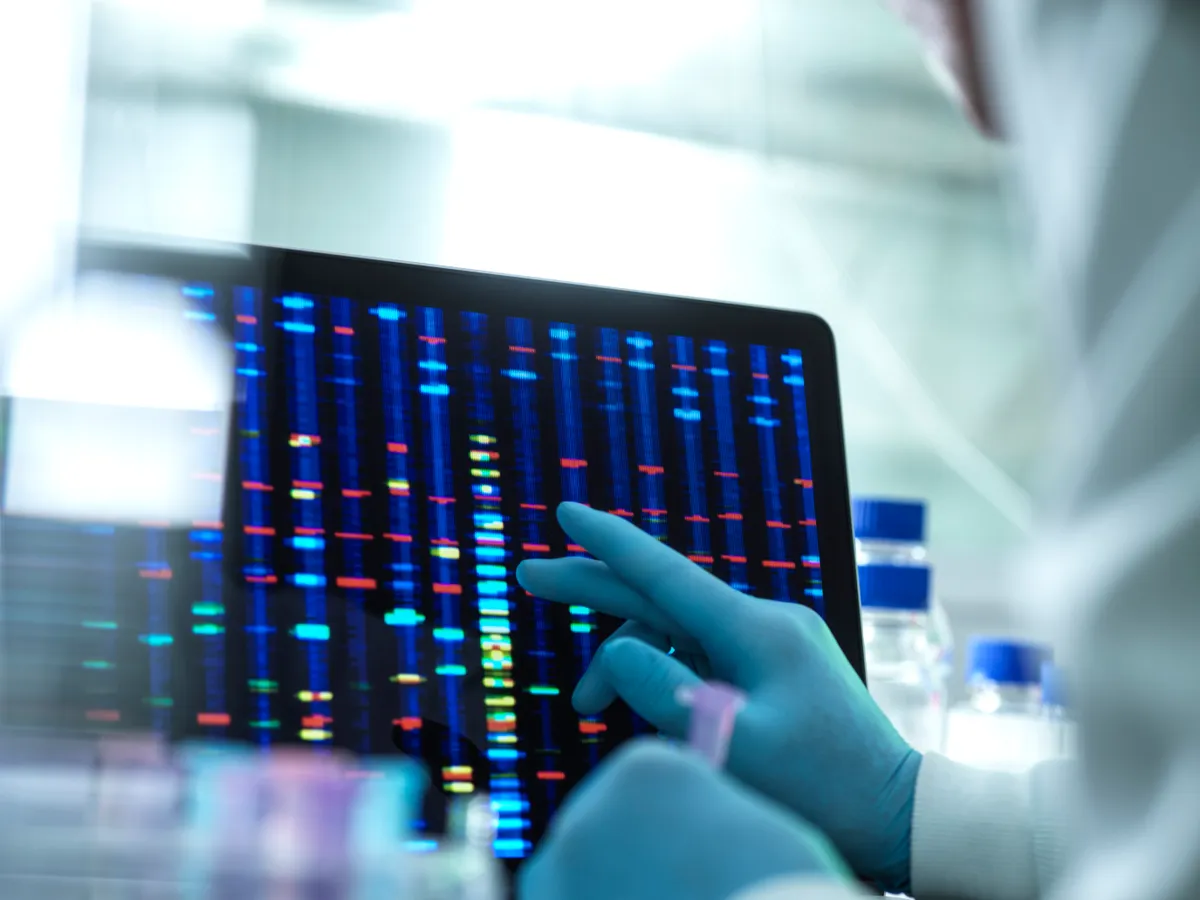Y-DNA is the DNA on the Y-chromosome, which is only found in males and is passed down from father to son.
Visit our guide on how to choose the right DNA test for you
What does Y-DNA tell you?
Unlike autosomal DNA, which is DNA carried on the chromosomes that we inherit from both parents and changes with each generation, Y-DNA remains virtually unchanged. Y-DNA is a useful tool for answering questions about relatedness on the direct male line (the patriline) going back to the beginning of genealogical records in medieval times. In an August 2023 paper in the journal Nature, scientists announced that they had fully sequenced the Y-chromosome, the last human chromosome to be fully sequenced, for the first time.
Y-DNA is a useful tool for answering questions about relatedness on the direct male line (the patriline) going back to medieval times.
As with all DNA tests, it is important to combine Y-DNA results with family history research research. A Y-DNA test on its own provides very little useful information, and the power of the test lies in the ability to compare results in a matching database.
Note that only males can take a Y-DNA test. If you’re female you’ll need to find a male relative to take a Y-DNA test on your behalf.
In most cultures Y-DNA tracks the same line of inheritance as surnames. A Y-DNA test can be used to answer questions such as whether two men with the same surname from different parts of the country share a common ancestor, or whether two variant spellings of a surname have a common root. You will get the most out of a Y-DNA test if there is already a structured one-name study for your surname.
Y-DNA testing can also be used in unknown-parentage searches - for example, if someone was adopted or donor-conceived, or if the patrilineal ancestor was illegitimate and the father’s name was not given on the birth record.
What is Y-STR DNA testing?
Y-DNA tests work by testing two types of DNA marker - short tandem repeats (STRs) and single-nucleotide polymorphisms (SNPs).
STRs are short repeating sequences of DNA letters. The number of repeats is counted up, and you are assigned a number for each position or marker that is tested. For example, if the motif TAGA is repeated 10 times, then you will be given the number 10 for this marker. Your Y-DNA test result is presented as a string of numbers representing your genetic signature, which is known as a haplotype. In simple terms, the more matching markers you share with another tester, the more likely you are to be related. Y-STR tests are useful for answering questions about patrilineal relatedness in the last few hundred years. However, in some circumstances it will not be possible to interpret the results with confidence, and SNP testing will be required.

An SNP is a single change in a DNA sequence, for example a T in a father becomes a C in his son. SNPs mutate very slowly, and are therefore very stable. The man in whom the mutation first appeared passes it on to his sons, and all their descendants several thousand years later will also carry the same SNP. Over time more SNPs accumulate, but the earlier SNPs are still preserved. Y-DNA therefore contains a cumulative record of all of the SNPs that have ever occurred in a man’s paternal line.
When you get your Y-DNA results, the first thing you will want to do is look at your match list. Matches are reported at up to five different testing levels depending on which test you ordered: 12, 25, 37, 67 or 111 markers. It is generally only Y-DNA matches at 37 markers or higher that are likely to be meaningful.
If you don’t have any useful matches from Y-DNA tests you can either wait for other people to test, or you can encourage distant relatives, such as fourth or fifth cousins, to take a test for comparison purposes.
Y-DNA testing has come a long way, and we are likely to see more advances and falling prices. Even if you don’t have good matches from the outset, your DNA will stay in the database as projects grow, and will serve as a legacy for future generations.
Which Y-DNA test is best?
Most commercial DNA tests test autosomal DNA. FamilyTreeDNA is the only company that offers a Y-DNA test. LivingDNA and 23andMe’s DNA kits test all three types of DNA (although not Y-DNA if you are female), but they only test the Y-DNA and mitochondrial DNA haplogroups, not STRs.









